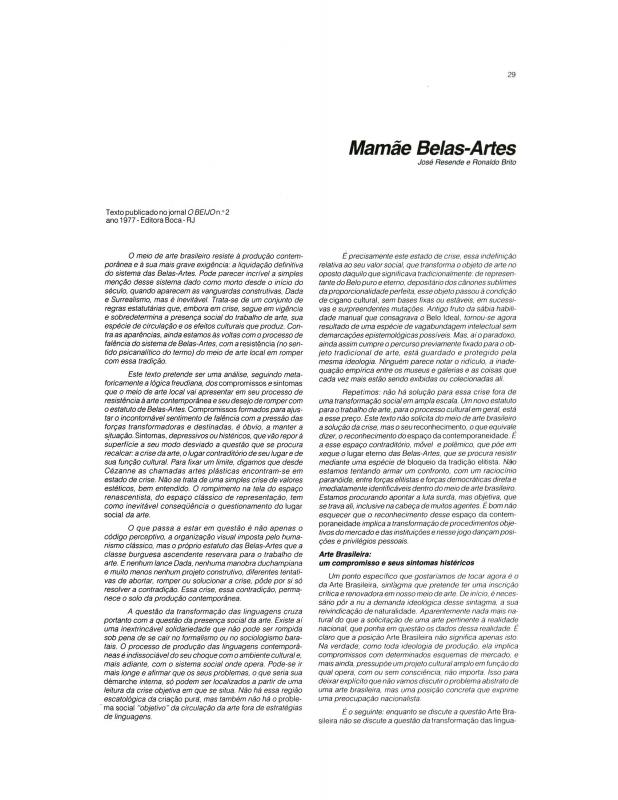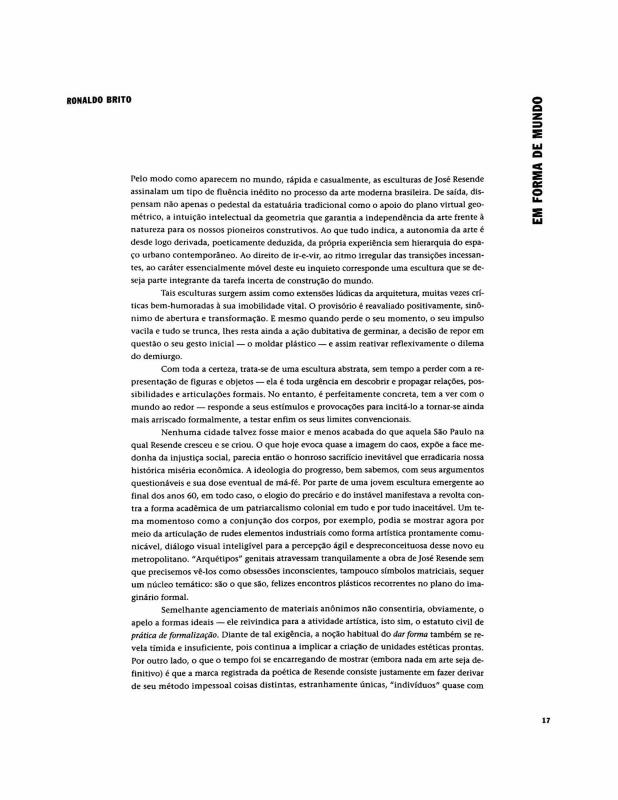This text was written by the sculptor José [de Moura] Resende [Filho] (b. 1945) in the context of the ongoing debates on introducing university courses designed to educate artists. Such debates were critical of the institutionalization of art courses, added to curricula as theoretical skeletons for practical courses covering advertising, journalism, radio, and TV, and perhaps industrial design. Resende believes it is necessary to define art as an autonomous activity, linked to the development of knowledge and the part it plays in society. It should never be used to develop cultural attributes as tools for the prevailing production system.
Between 1966 and 1967, Resende was a member of the Grupo Rex, responsible for both the exhibition space Rex Sons & Gallery and the journal Rex Time along with Wesley Duke Lee, Geraldo de Barros, Nelson Leirner, Frederico Nasser, and Carlos Fajardo. Moreover, between 1970 and 1974, Resende was one of the founders of the Centro de Experimentação Artística Escola Brasil in São Paulo, where he also served as a professor, along with Paulo Baravelli, Nasser, and Fajardo. In Rio de Janeiro, around 1975, he was coeditor of the journal Malasartes with the critic Ronaldo Brito, while also working with various artists including Waltercio Caldas, Carlos Zilio, and Cildo Meireles.
For additional information on the artist, the critic Ronaldo Brito wrote an article with Resende titled “Mamãe Belas-Artes” [doc. no. 1110449], in which the two writers sought “to analyze”—in the psychoanalytic sense—the commitments and symptoms presented by the Brazilian art world. In another text, Ronaldo Brito wrote an in-depth analysis of the Brazilian sculptor’s approach, in which the critic detected “a modern vocation for the real world around him.” This is why Brito joined forces with Resende to question the stagnation endemic to art institutions—always based on ideology, in “Em forma de mundo” [doc. no. 1111278].


